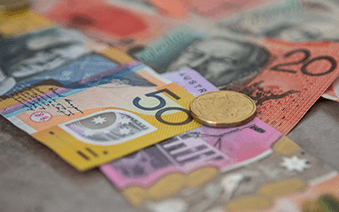Taking out a personal loan is one thing, but being able to maintain your repayments is something else entirely.
Setting aside money each month for your repayments can be tricky when emergencies or last-minute expenses get in the way, and if you don’t pay on time it can affect your credit rating.
So how do we manage this financial commitment? Let’s take a look.
We all like to think we’re good at paying bills on time, but it’s not always the case – and it’s not always that easy.
Knowing your repayments gives you room to budget with the rest of your other bills and commitments, and it’s handy for working out the timing with your next pay.
If you don’t make repayments on time, you could receive a penalty and damage your credit rating, so it’s important for you to know your repayments ahead of time.
To calculate your repayments, use a credible personal loan repayment calculator.
It’s simple, but choose the account that will have money in it ready for repayments.
Another thing to note is, which account is the best to pay with. Some banks have interest bonuses for savings accounts and using that account might mean you don’t get your bonus interest.
Direct debit is a gift sent from the heavens – it means you don’t need to think about setting reminders for manual repayments but you do need to make sure you have the money available to avoid fees and charges.
Set up a direct debit to have the amount automatically taken from your account.
Just because you agree to one loan deal doesn’t mean that you’re stuck with it. You might get a better offer while you’re repaying your loans if you manage to raise your credit score.
If that’s the case, you may get offers with lower interest rates when you look for a loan – just make sure you’ve made repayments on time.
Setting a budget will help you understand the financial commitment of having a personal loan.
If you know that the pet insurance, car rego, and phone bill are coming within the same week, it’s best you don’t make any unnecessary purchases. A budget will give you a reason to stick to your goals and help you set your priorities straight.
A budgeting or loan tracker app is a great way to understand your finances, get reminders on upcoming repayments, and have all your loans in one place.
Keep your eye on the big stuff, but don’t get distracted and forget the small loans. Neglecting the bills that can be paid ‘later’ may only do damage to your credit score.
Even if you owe your mobile provider $30 for your data plan, pay up that $30 to avoid receiving a penalty and impacting your credit rating.
If you struggle juggling your financial commitments, maybe consider combining your loans with a debt consolidation loan. This means you can put together all the loans you have so that you pay one total amount each period. Keep in mind that by doing this means you’re signing up for another loan to pay off your debts, so consider this aspect before jumping on board.
Carefully read over anything you’re signing. Whatever and whoever you go with, read the fine print so you don’t get caught with hidden fees.
Some lenders might charge fees for paying out your loan early, too, so check your contract first – which brings us to our next point.
Want to pay off your personal loan early? Not so fast – there are a few things to consider first.
When you’re close to the end of a personal loan, you might be swayed to pay it off early. It sounds great, but some lenders charge you for that.
Do the research and read through the paperwork. However, not all extra fees are bad – some are actually beneficial on a high interest loan, which can make early repayment a safe option.
This can help you pay off a personal loan early, but you’ll have to check with your lender first to see if it’s possible as it depends on the type of loan you have.
Change how often you make your repayments. If you’re making monthly repayments, try fortnightly instead. This way you’re chipping it off bit by bit without feeling like you’re draining your bank account.
If increasing your payments won’t work for you, an extra payment each year might be easier to manage.
What if you increase your repayment amount but there’s an emergency and you need the money back? Some lenders allow for a withdrawal of your additional repayments at any time. As it’s an extra amount, the lender won’t take it as part of the repayment – they’ll hold it there for the time being.
Practicing better repayment habits only means that you’re helping yourself in the long run.
Regardless of why you’re taking out a personal loan, by following these tips you should be ready to take on your repayments

Answering your questions about loans and staying savvy

Get more bang for your buck with these handy tips.

Need some advice that’s not about cash? We can help.